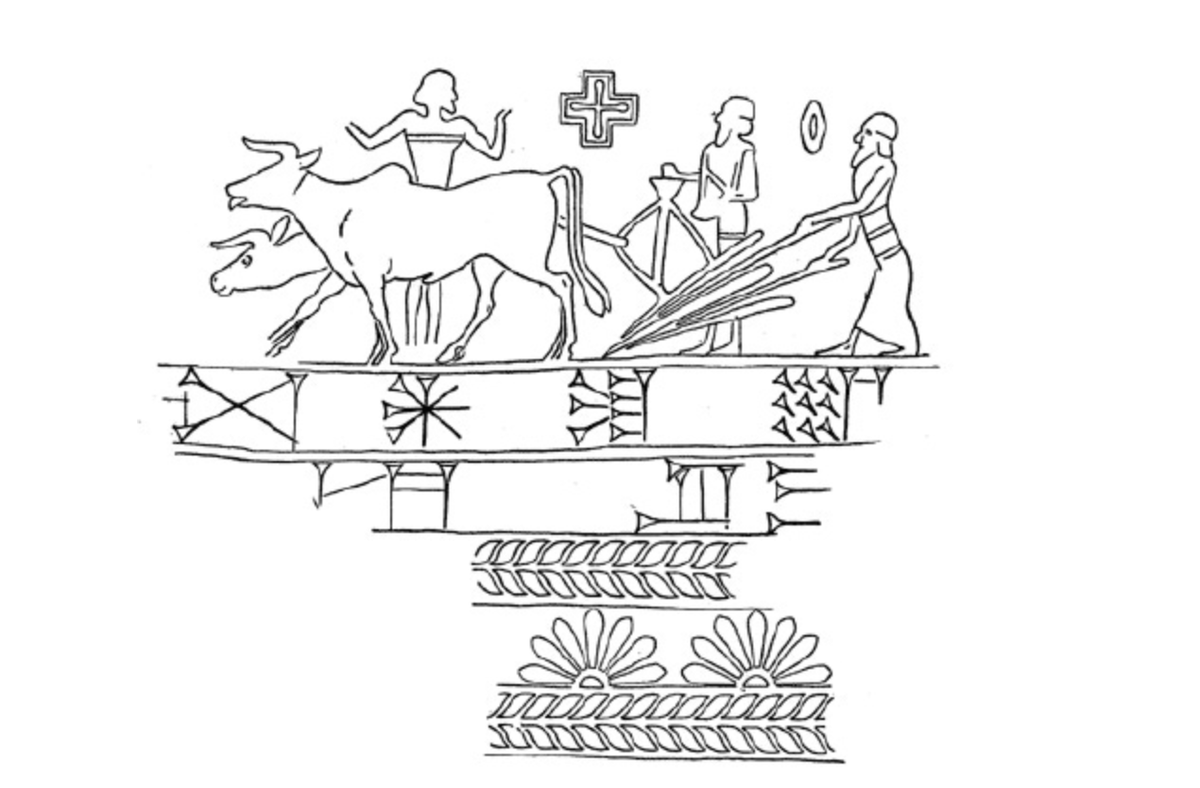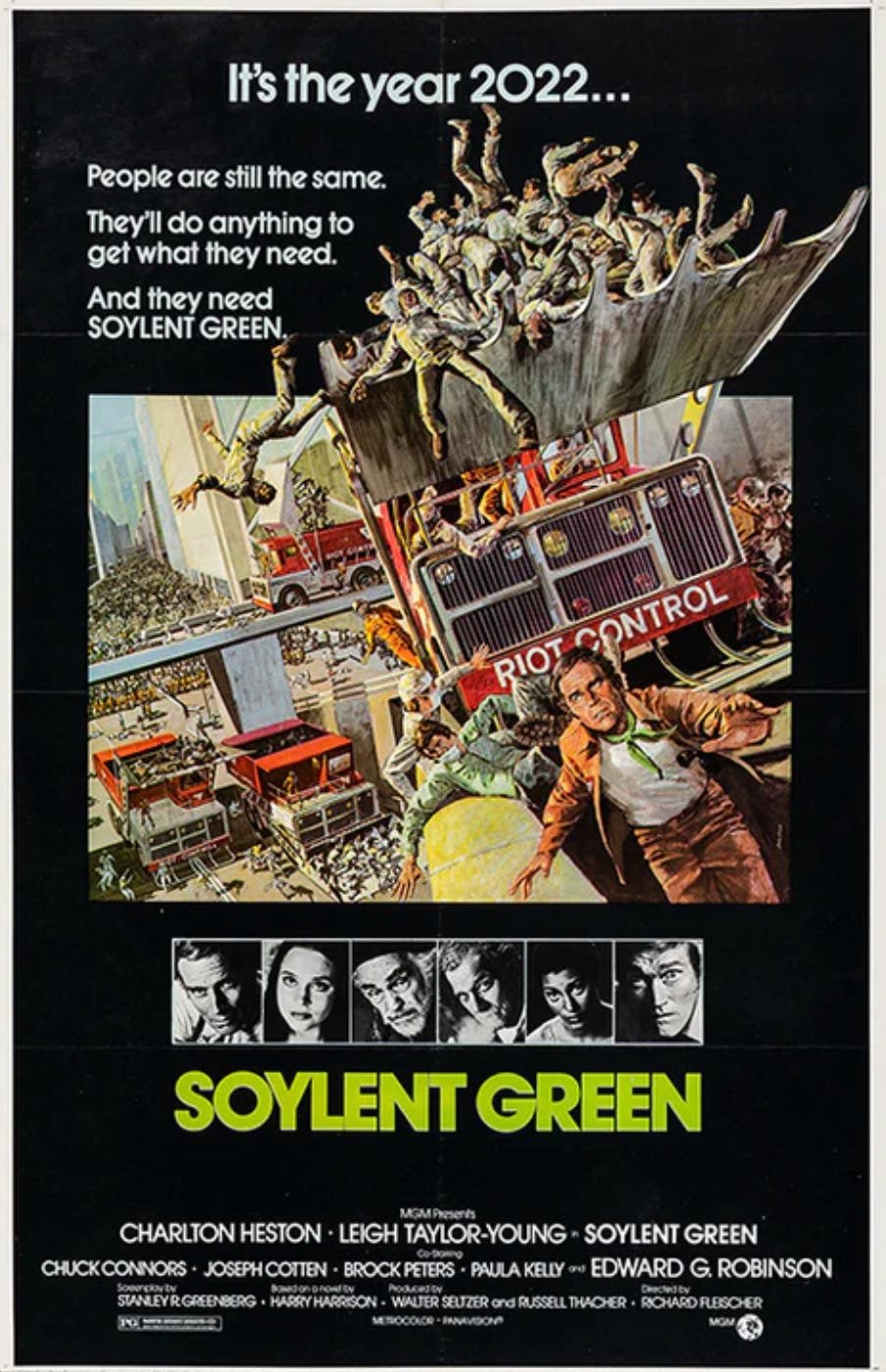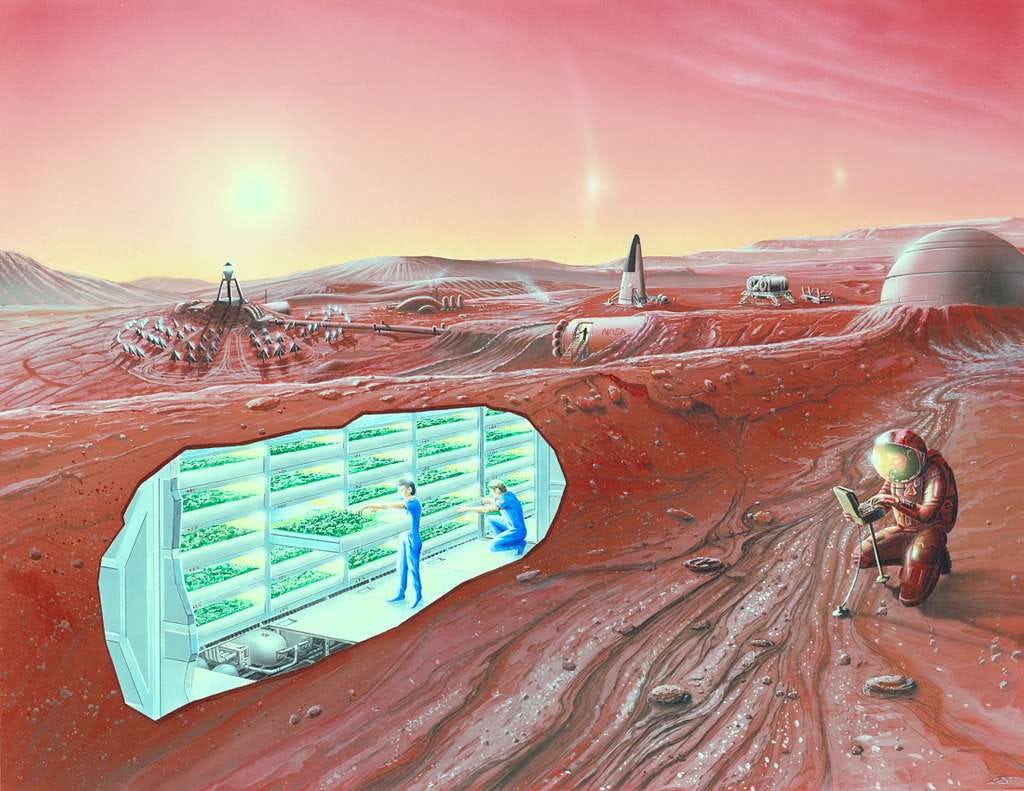In Defence of Farming
Four Words Nobody Should Ever Have to Write

Four Words Nobody Should Ever Have to Write
And yet, I’ve written them.
How alienated are we from the people who produce our food, and the places that produce it? So alienated that calls for abandoning farming altogether are being taken seriously, to the extent that they are seen as guideposts to a more sustainable future.
The attack has come on many fronts. From the intellectual angle—I use the word “intellectual” here loosely—there is the pop-science-history trope, one that has a certain cachet in the more Bro-oriented corners of anthropology, that “agriculture was the worst mistake in the history of humanity.”
This is the formulation of American geographer Jared Diamond, he of Guns, Germs, and Steel and Collapse. “With agriculture,” wrote Diamond, “came the gross social and sexual inequality, the disease and despotism, that curse our existence.”
It’s an idea that was paraphrased, if not developed, by the Israeli historian Yuval Noah Harari, who wrote in his best-selling book Sapiens that the transition to farming “translated into population explosions and pampered elites…the average farmer worked harder than the average forager, and got a worse diet in return. The Agricultural Revolution was history’s greatest fraud.” (As an antidote to Harari’s superficial and tendentious reading of our species’ story, I recommend The Dawn of Everything, by David Wengrow and the late David Graeber.)
The notion of farming-as-disaster has been reiterated in such works of popular history as Spencer Wells’ Pandora’s Seed and Richard Manning’s Against the Grain: How Agriculture Has Hijacked Civilization.
The first casualty of the Neolithic farming revolution, according to these anti-agriculturalists, was human well-being. And studies of skeletal remains in the eastern Mediterranean have indeed shown that, after the adoption of farming, life expectancy dropped by over two years, and average male heights dropped from a strapping five foot ten to just five foot three. Prehistoric hunter-gatherers, in other words, were stronger, taller, and—if they survived infancy—could expect to live longer, healthier lives. Early agriculturalists were prone to anemia, tooth decay, and, because their diets typically depended on a single cereal crop, serious vitamin and mineral deficiencies. Women in particular suffered, as shown by the characteristic bent-under toes and deformed knees found in bodies unearthed in agricultural villages on the Nile and in the Fertile Crescent, a testament to the hours spent a day kneeling and rocking back and forth over a quern to grind grain into the daily gruel or bread. Food surpluses allowed some people to escape such toil; the lucky few at the top of emerging hierarchies benefited from more abundant food, better health, and longer lives. The rest of us, presumably, swapped our freedom for a loaf of bread and the jugs of mind-numbing ale or wine that helped reconcile us to our new existence of drudgery and subjugation.
There is truth in this account. The problem is, there is no going back to our hunter-gatherer-forager days, when just a few million hominins chased game and gathered plants and aquatic resources, from Patagonia to Aotearoa. There have been three major agricultural revolutions since then—the Neolithic (ca. 10,000 BCE), the Industrial (ca. 1700 CE) and the Green (ca. 1960 CE)—and this massive increase in the food supply has allowed our population to swell to 8 billion. It is estimated that 4.5 billion of our number wouldn’t be alive at all if it weren’t for the Haber-Bosch process, the fossil-fuel-intensive means of creating synthetic fertilizers, and the hybrid grasses (corn, wheat, rice, which require vast amounts of water and fertilizer) of the Green Revolution.
Along with the Industiral and Green revolutions, we’ve seen history’s fastest and most sweeping urbanization: over 50% of us already live in cities, and that number seems set to rise to 70% by mid-century. (Take that with a grain of salt: as a student of history, I believe that anything can happen, and it probably will. Cue the “Masque of the Red Death.”) This urbanization has removed the bulk of the population from the land where food is actually produced. At the same time, mechanization, consolidation, and the ongoing enclosure of the commons mean that the number of farmers on the land has radically diminished. As late as 1880, half the US population worked the land, as farmers or herders; today, just 2 percent does. The average age of a farmer in Canada is now 56 years; in the United States, it’s 57.5 years; in he UK, it’s 59 years. And the people who work the land are undergoing a massive mental health crisis: they’re crippled by debt, underappreciated, and see no lines of succession—their children don’t seem to want to take over the family farm. And given the opprobrium heaped on farmers—indeed, on agriculture writ large—who can blame them?
With no eyes on the land, it’s easy to sell people gathered in cities any old rubbish. And that includes the most toxic, unbelievable eco-modernist pap: the notion that we will achieve a green utopia, feeding the 6.4 billion of us who may soon be living in megacities, with manufactured food—protein pancakes—made from “precision fermentation,” a process to be powered by hydrogen and massive inputs of nuclear-generated electricity. Or synthetic meat. Or genetically-modified, CRISPR-edited veg. Or whatever version of Soylent Green the simple-solution technologists are trying to peddle these days.

In other words, “Let them Eat Bacteria! That way we can turn those unsightly farmers’ fields into nature preserves, and let the wolves, badgers, and ospreys return to a rewilded world.” This is the essence of Posh Utopianism: continue the clearance of the peasants off the land, which we will also us to roam a vast Area of Outstanding Natural Beauty with our binoculars and wellies, communing with the warblers.
Look, it’s clear that agriculture has taken a spectacularly wrong turn. (And it’s no less clear the warblers are suffering for it!) The rise of monocultures around the world is draining and contaminating aquifers, and leading to a catastrophic drop in biodiversity (which includes the range of breeds and cultivars of the livestock and plants that feed us). But that’s not an argument for doing away with farming. That’s an argument for doing farming right.
In researching The Lost Supper, I’ve sought out and told the stories of farmers who are getting agriculture right in the 21st century. Pig breeders in the American south who are raising Ossabaw Island hogs on forest mast, in mixed farms. The Hattans, a family in the Yorkshire Dales who are saving a critically endangered breed of cattle, restoring meadow ecology, and producing fantastically flavourful Wensleydale cheese. The grain farmers who are working hard to keep land-enriching ancient wheats like emmer and spelt alive, and bring them to urban markets, mills, and bakeries.
Can the efforts of such small producers be scaled up to feed 8 billion people? Of course they can’t. But they form the philosophical nucleus of the real revolution. That’s not British journalist George Monbiot’s “Greener Revolution” (i.e, the aforementioned nuclear-powered protein pancakes), but a re-engagement with the land, something British author and farmer Chris Smaje refers to as “agrarian localism.” It’s the opposite of simple-solutionism: it’s complex, effortful, and necessary. That’s how the farmers I’ve met see it; and that’s how they live their lives, which, if they are full of effort, are also full of meaning. They do it because they know, deep in their boots, that food production, in its herbicide-laden, over-fertilized industrial form, has been utterly decoupled from the capacity of the land to feed us. And that’s going to take some massive adjusting. It’s not optional. The ecosystem breakdowns are already happening all around us.

The answer is definitely not to extend the doomsday logic of industrial agriculture into a glittering near horizon of protein pancakes for the citified masses. This is a program that leads to continued population growth, and the fulfilment of the Philip K. Dick spectre—lately invoked by Elon Musk—of a polluted planet, abandoned for the mirage of a better life in the colonies of Mars.
What we need to do is de-industrialize agriculture, not abandon it. This is a massive undertaking, one that treads perilously close to the third rail of modern technocratic orthodoxy—the idea, anathema to eco-modernists, of degrowth.
